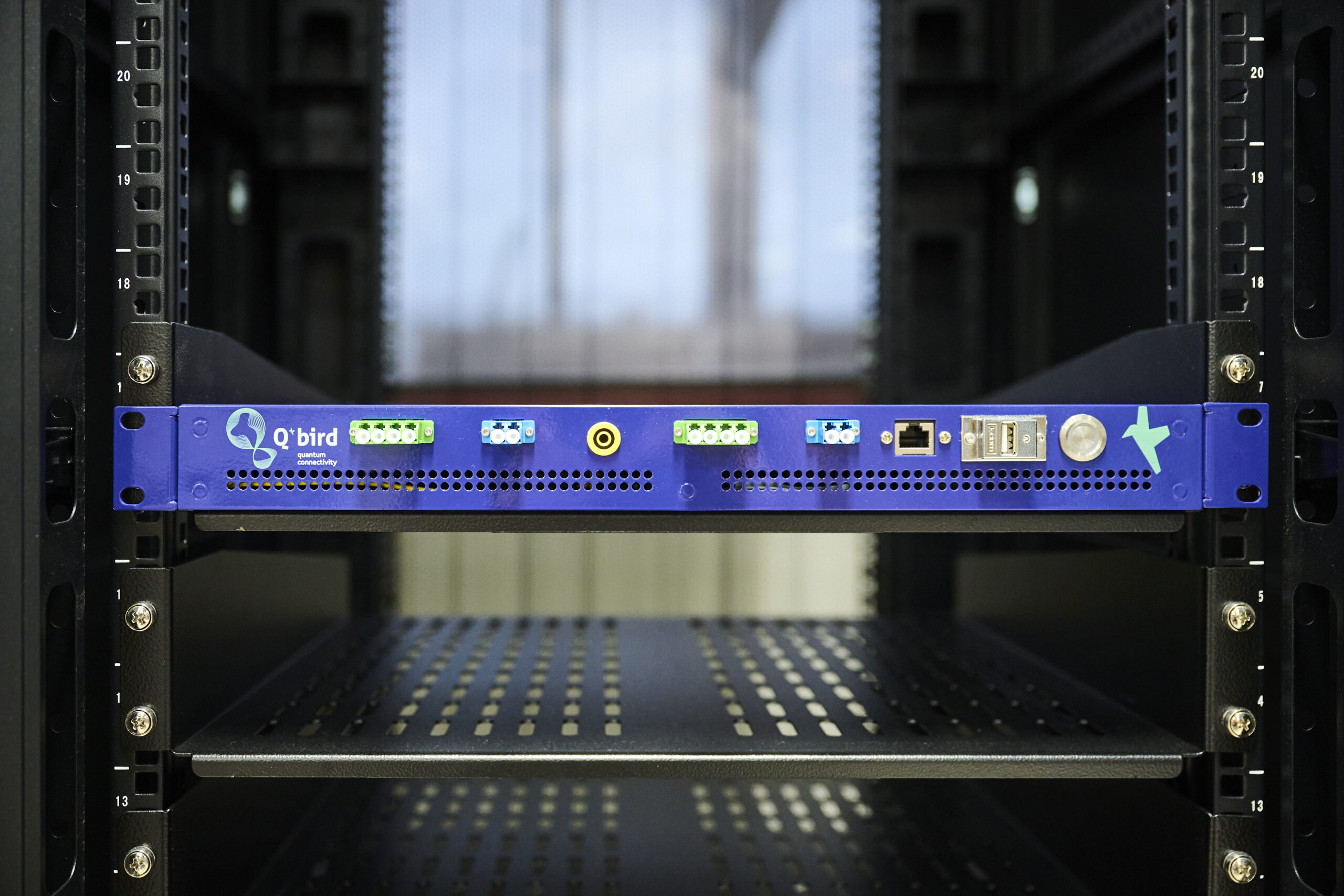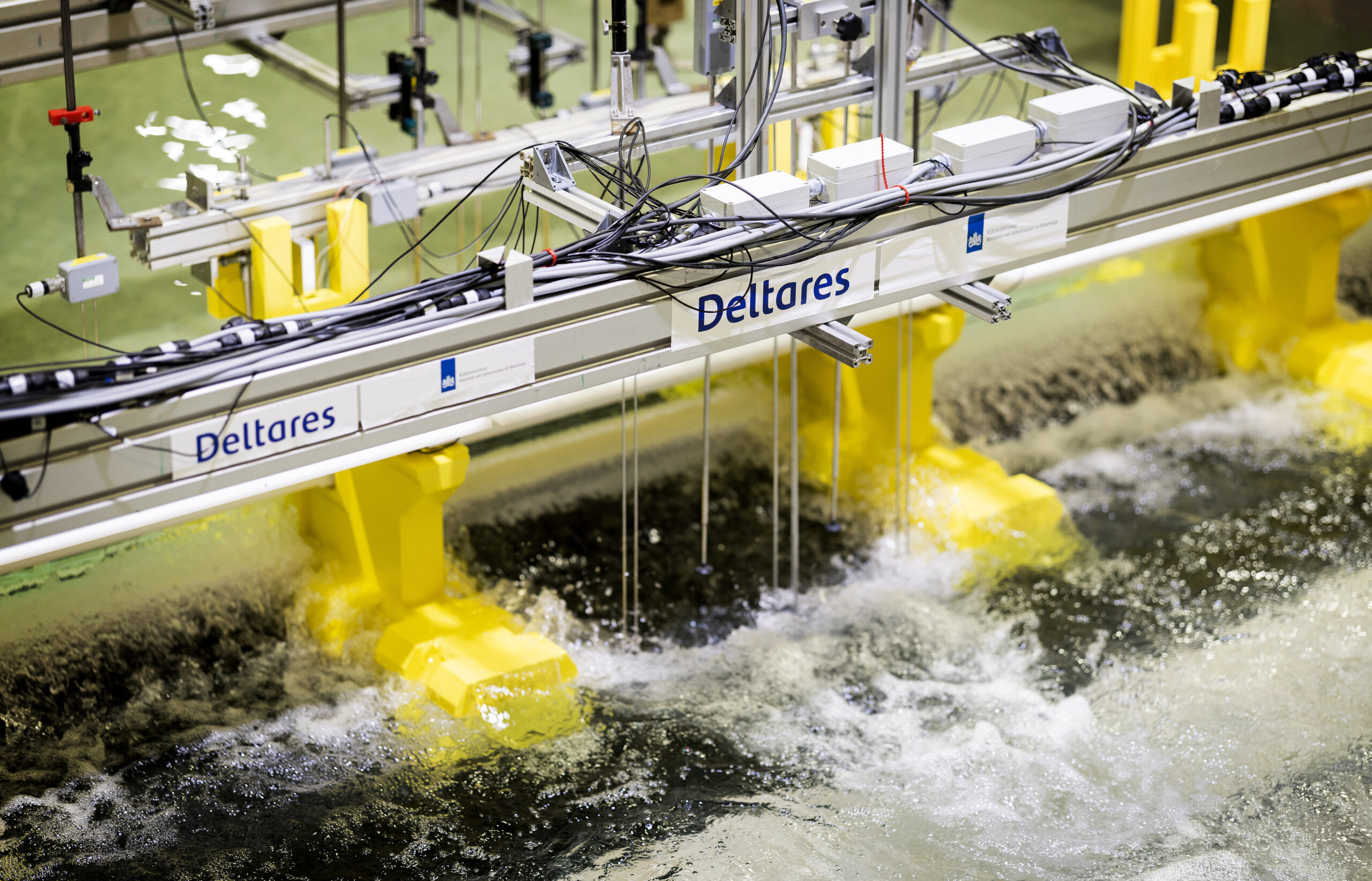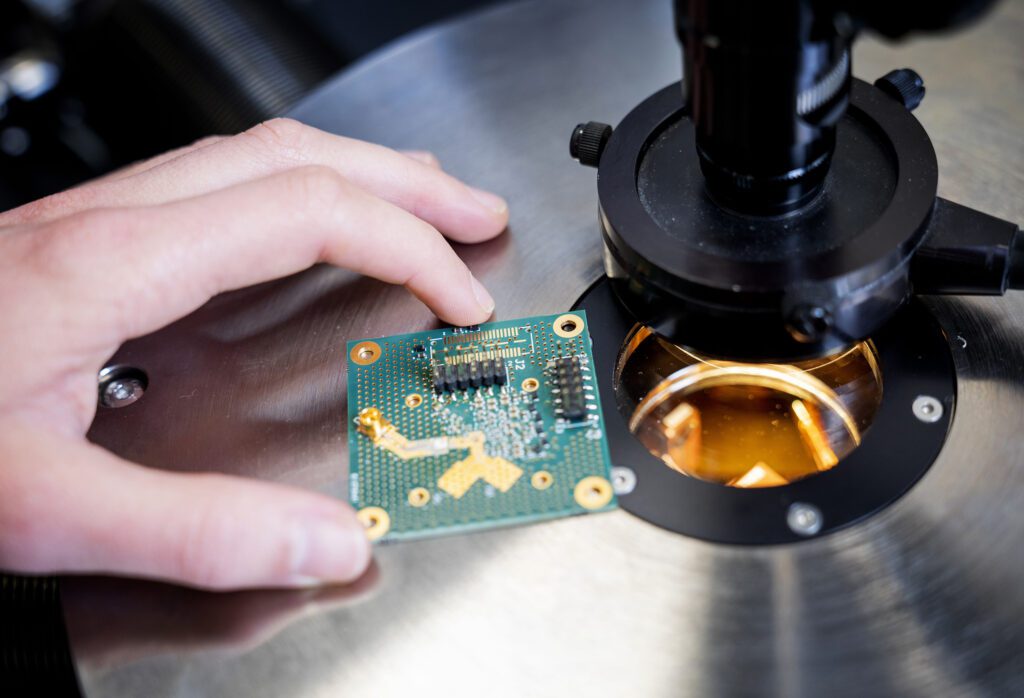
It was a glorious moment in February of this year: the inauguration of the Microsoft Quantum Lab by King Willem-Alexander. The quantum computer is coming, Hans Bos, National Technology Officer at Microsoft Netherlands, is absolutely certain about that.
“What exactly is the effect of caffeine in coffee?” Bos brings this up to illustrate the type of everyday questions underlying fundamental research on qubits. It’s a simple question, but we don’t know the answer yet because it involves very complex biological processes. To map these processes, you need an advanced computer. One that is much more advanced and has more computing power than all existing supercomputers combined. A quantum computer.
“A great many processes in nature are inherently quantum mechanical”, Bos explains. “If you want to know exactly how photosynthesis works, how plants can extract substances from the air and store these in their roots underground: that’s a quantum mechanical process.” If you want to simulate this precisely and make improvements to it, you need a quantum computer. A conventional computer is not big or fast enough.
Numerous other processes are also quantum mechanical in nature. “With a quantum computer you can, for example, use special algorithms to develop personalised medicines that can help you fight diseases in a much more targeted manner.” If you understand photosynthesis better, you can produce much more efficient solar cells using a quantum computer.
Majorana particle
In short, with a quantum computer you can do ‘fantastic things’ in healthcare, the energy sector and in many other fields. But first, we have to build this computer, and that is the goal of the Microsoft Quantum Lab on the TU Delft Campus under the leadership of Leo Kouwenhoven. As professor at TU Delft in 2010, he discovered the first evidence of the mysterious Majorana particle that forms the basis of the so-called ‘qubits’ – a potential building block of quantum computers.
Microsoft has set up several such quantum labs around the world. Why specifically in Delft now? “We deliberately chose the Netherlands, because of the exceptionally high level of knowledge and the excellent cooperation between the universities at Delft, Amsterdam and Eindhoven”, Bos explains. “This creates a very open environment, one which is highly conducive to knowledge development.”
The lab is filled with specialised equipment: refrigerators for cooling the qubits to just a few millidegrees above absolute zero and special microscopes that allow you to examine at an atomic level whether the materials are clean. The clean rooms at TU Delft are also used for this purpose.
National Agenda on Quantum Technologies
Part of Bos’ role as National Technology Officer is to ensure that Microsoft’s services and products comply with Dutch laws and regulations. He is already working on the introduction of the quantum computer. When it actually arrives, the Netherlands must be ready and able to reap the benefits.
“We’re doing really bold, special and innovative things in the area of quantum technology in the Netherlands, and we want to develop these activities further.” In cooperation with a number of other parties, including TU Delft, QuTech and the Netherlands Organisation for Applied Scientific Research (TNO), Microsoft is drawing up a National Agenda on Quantum Technologies. This Agenda expresses our ambition to make our country the international capital of quantum technology.
“We’re on the right path, but if we want to achieve this ambition, we must also be ready when the quantum computer is there.” Science, healthcare institutions, industry, chemical companies, large financial institutions, agriculture and horticulture – all these entities should be able to benefit immediately from the new technology. What needs to be done for this? “You have to start investing in knowledge and startups without delay and large companies need to start preparing themselves.”
“Knowledge is the starting point. The goal is to apply it.”
Software
This also involves, for example, the development of the appropriate software. Such software is fundamentally different from that on which conventional computers run. “You have to think differently about algorithms and it’s best to get started on that right now.” You also need to identify suitable problems for a quantum computer to solve.” Another challenge will be the quantum-resistant encryption of existing networks and systems, since a quantum computer will be able to crack many of today’s advanced encryptions in no time.
“A quantum computer will be able to crack many of today’s advanced encryptions in no time”
Accelerating role
Bos is pleased with the interaction between Microsoft and TU Delft for setting up the lab and the way in which the collaboration is progressing. Both the Campus and Microsoft benefit from this. “We accelerate the process of putting technology into practice. Naturally, the university is a centre for knowledge development, but knowledge is just the starting point. Application is the goal”, he explains. “This is the key to our role and presence on the campus: we contribute to increasing the value of knowledge development at TU Delft.”
The lab forms the core for the research on topological qubits, but Bos emphasises the important role played by other parties in the campus ecosystem in relation to this theme: for example, the TNO is a key supplier of the materials used in the lab. He is also happy that Bluefors – the company that supplies the refrigerators mentioned before – has set up operations at the campus.
Microsoft also works together with YES!Delft, InnovationQuarter and StartupDelta. They play an important role in our ambition to make the Netherlands ‘quantum-ready’ – venture capital, startups that develop advanced algorithms – we need all of this. Students wanting to start up a business here are also encouraged.
Meeting place
Bos expects Microsoft to still be on the campus even ten years from now. Although the campus itself will look quite different then. “Teaching activities will become increasingly digital, and the campus will become more of a meeting place for students and professors and a place where companies and researchers can share valuable equipment”, he predicts. “I think the innovative and positive environment will only become stronger.”
Story by Jurjen Slump



